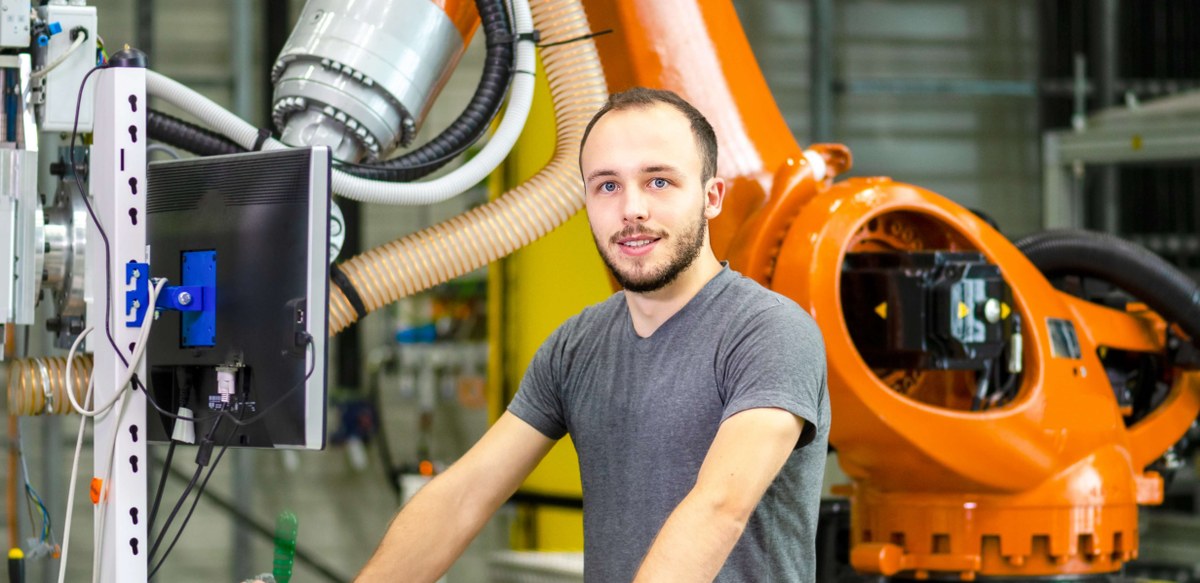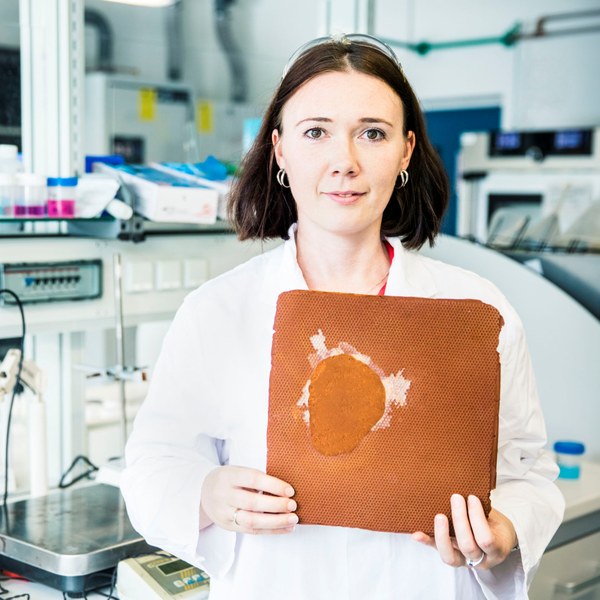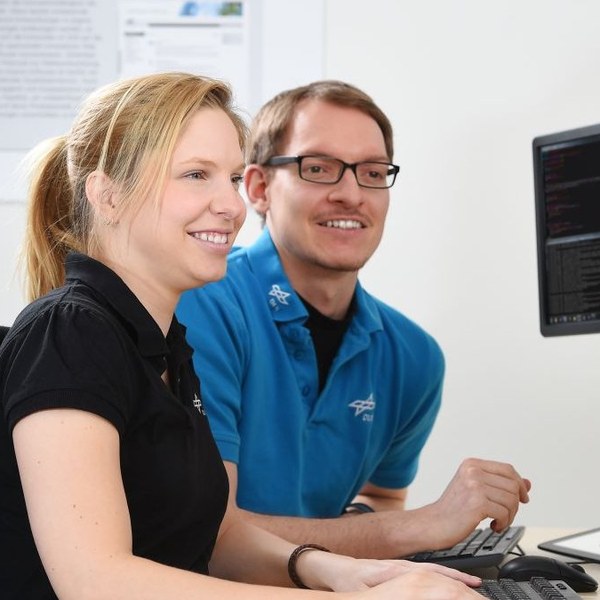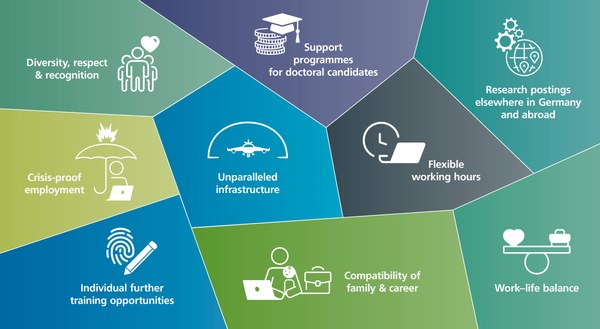Tobias Haase
Field of study: Computer science
Now: Institute of Structures and Design
Tobias Haase studied computer science. Since 2016 he has been working as a researcher in the Department of Automation and Quality Assurance in Production Technology at the DLR Institute of Structures and Design’s Center for Lightweight-Production-Technology (ZLP) in Augsburg. In this interview, he tells us about his job.
Tobias, what do you look forward to when coming to work in the morning?
Tobias: I look forward to coming into contact with new technologies and being able to use them successfully together with my colleagues. For me, using technologies that you would never come into contact with as a private individual is quite special.
What are you researching or working on?
Tobias: I am working on the automated coordination of industrial processes across several plants. This step of automation requires the networking of conventional plants and the integration of very modern equipment.
„I am working on the automated coordination of industrial processes across several plants“
One of the challenges of my work is the development of a common infrastructure that allows all the systems to send and receive data. If all process participants can exchange information about the process flow, it enables us to adapt and optimise processes during operation. The resulting data can be evaluated in real time or subsequently to gain further insights for future experiments.
What does your typical working day involve?
Tobias: In addition to developing software, communicating with my colleagues is a priority. This allows me to constantly get to know new application scenarios and direct my work accordingly. I often develop the software in my office. Towards the end of a section, however, I test my developments on real systems.
Where and how is your work being used?
Tobias: My results are primarily intended for use in aircraft construction, where the work is currently still batch-based and highly variable. In principle, however, my work can also be transferred to many other automated processes. It becomes interesting when the processes are non-linear and incorporate many degrees of freedom.
What are the highlights of your work?
Tobias: I find testing the software on real systems after a long development cycle particularly exciting. It is only at this moment that it becomes clear whether the communications between the systems and with the systems of my colleagues function properly. It is always great to see that everything interacts perfectly and the process runs smoothly.
„The work at DLR enables me to put my own thoughts and ideas into practice and to conduct research with a great deal of freedom“
What special skills can you make good use of in your job?
Tobias: Coordination skills and the ability to think analytically help to keep track of all the requirements and process participants. It is equally important to be able to communicate with colleagues from different departments and to understand their challenges.
Leave us a final thought.
Tobias: The work at DLR is special because it enables me to put my own thoughts and ideas into practice and to conduct research with a great deal of freedom. A unique group dynamic is created with colleagues who are pursuing similar goals.




